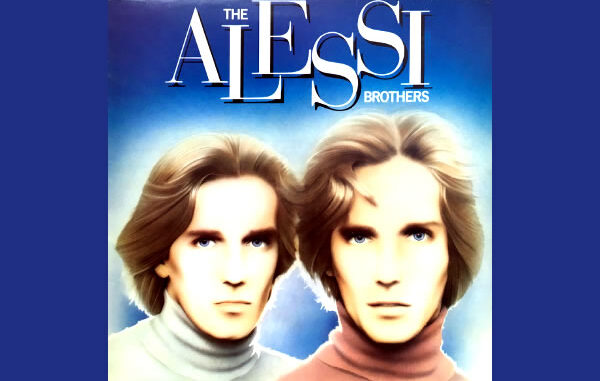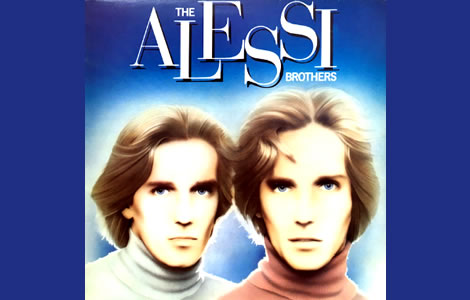
In 1976, the Alessi Brothers, Billy and Bobby, made a significant mark on the music scene with their soft rock hit “Oh Lori.”

This track, characterised by its smooth harmonies and melodic charm, became a standout success across various global markets.
Let’s delve into the song’s triumphs in key regions, the background and career of the Alessi Brothers, and notable cultural events and music charts of 1976.
The Success of “Oh Lori”
“Oh Lori” achieved remarkable success in the United Kingdom, peaking at number eight on the UK Singles Chart. The song’s gentle, breezy feel resonated with the British audience, making it a staple on radio playlists throughout the summer.
In Europe, the song also found a receptive audience, charting high in several countries. Notably, it reached the top ten in the Netherlands and Belgium, further cementing its place as a beloved tune of the era. In Germany, “Oh Lori” enjoyed substantial airplay and moderate chart success, enhancing the Alessi Brothers’ popularity in continental Europe.
While “Oh Lori” didn’t climb as high in the United States, it still garnered attention and modest chart performance, particularly in adult contemporary circles. The song peaked at number 68 on the Billboard Hot 100 but fared better on the Adult Contemporary chart, where its mellow vibe was more in line with the listeners’ preferences.
In Australia, “Oh Lori” achieved significant airplay, and although it didn’t dominate the charts, it enjoyed a steady presence on radio stations, contributing to the Alessi Brothers’ international appeal.
The Alessi Brothers: Background and Career
Billy and Bobby Alessi, identical twins, were born on July 12, 1953, in West Hempstead, New York. They started their music career in the early 1970s, initially performing as part of a band called Barnaby Bye, which had a moderate following. However, it was their decision to pursue a duo act as the Alessi Brothers that brought them greater success.
The duo’s self-titled debut album, released in 1976, featured “Oh Lori” as its standout track. Their music was characterised by intricate vocal harmonies, soft rock melodies, and a penchant for romantic, introspective lyrics. This style set them apart in a decade dominated by disco, punk, and hard rock.
After the success of “Oh Lori,” the Alessi Brothers continued to release music and tour. They produced several more albums, including “All for a Reason” (1977) and “Driftin’” (1978), but none replicated the commercial success of their debut hit. Despite this, they maintained a dedicated fan base and continued to work in the music industry.
In the 1980s and beyond, the Alessi Brothers expanded their repertoire by writing and producing music for other artists.
They also ventured into commercial jingles and soundtrack work, showcasing their versatility and longevity in the industry. Their ability to adapt to different musical landscapes ensured they remained relevant and respected figures in music circles.
1976 in Film and Television
The year 1976 was a vibrant one for entertainment, with notable achievements in both film and television.
At the Academy Awards, the film “Rocky” emerged as the big winner, taking home the Oscar for Best Picture. Directed by John G. Avildsen and starring Sylvester Stallone, “Rocky” was a cinematic phenomenon, telling the underdog story of a small-time boxer given a chance to fight for the heavyweight title.
The film’s success catapulted Stallone to stardom and became an enduring part of American pop culture.
In the realm of television, “Happy Days” was the most popular TV show in the United States in 1976. The sitcom, set in the 1950s and 1960s, followed the lives of the Cunningham family and their friends, including the iconic character Arthur “Fonzie” Fonzarelli, played by Henry Winkler.
“Happy Days” captured the nostalgic spirit of a bygone era while resonating with contemporary audiences.
The Music Scene in 1976
When “Oh Lori” was making waves, the music charts were bustling with a variety of hits that showcased the diverse tastes of the time.
In the United States, the Billboard Hot 100 in 1976 featured a mix of rock, disco, and pop. Some of the prominent chart-toppers included:
- “Silly Love Songs” by Wings: Paul McCartney’s band dominated the charts with this catchy, feel-good tune.
- “Afternoon Delight” by Starland Vocal Band: This soft rock hit was known for its harmonies and suggestive lyrics.
- “Don’t Go Breaking My Heart” by Elton John and Kiki Dee: This duet became a massive hit, showcasing the chemistry between the two artists.
In the UK, the charts were equally diverse. Alongside “Oh Lori,” other notable songs included:
- “Dancing Queen” by ABBA: This iconic disco track became one of ABBA’s signature songs and a timeless classic.
- “Bohemian Rhapsody” by Queen: Although originally released in 1975, this epic rock ballad continued to enjoy chart success and acclaim in 1976.
Fondly remembered hit on Capitol fm
The Alessi Brothers’ “Oh Lori” remains a quintessential soft rock hit of 1976, fondly remembered for its melodic charm and harmonious vocals.
Its success across the UK, Europe, and other regions highlighted the universal appeal of the Alessi Brothers’ music.
While their subsequent releases didn’t achieve the same level of commercial success, Billy and Bobby Alessi’s impact on the music industry endured through their songwriting, producing, and adaptability.
As part of the rich tapestry of 1976, “Oh Lori” stands alongside memorable films like “Rocky,” beloved TV shows like “Happy Days,” and a dynamic music scene that continues to influence artists today.
